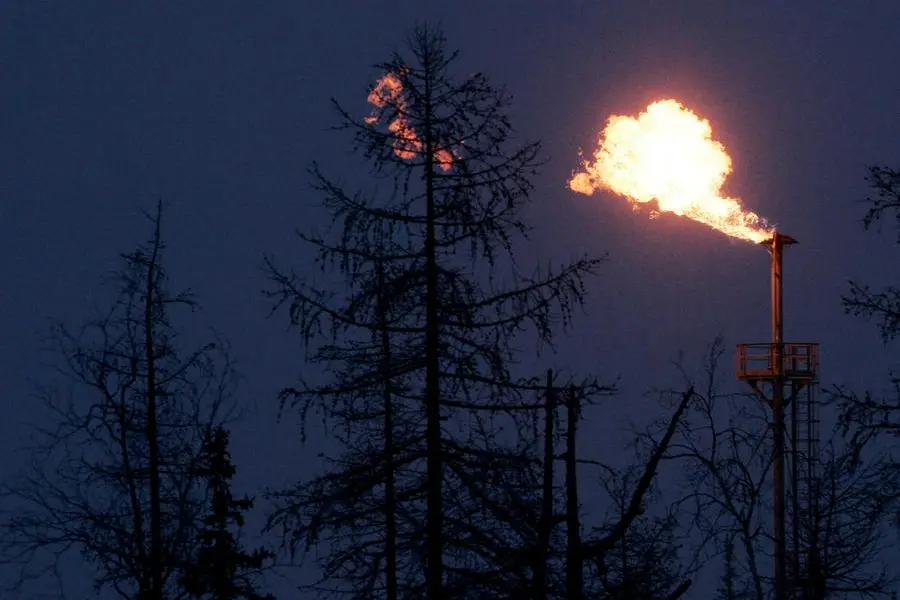PHOTO
LONDON - Global oil benchmark Brent remained stuck below $80 a barrel on Friday, but recouped some losses a day after sinking 5% to a four month-low on growing worries about burgeoning non-OPEC supply and cooling demand.
Brent futures rose $1.34, or about 1.7%, to $78.76 a barrel by 1349 GMT. U.S. West Texas Intermediate crude (WTI) was at $74.1, up $1.2, also roughly 1.7%.
Both benchmarks have lost around a sixth of their value over the last four weeks, and are on track for their fourth straight week of losses.
"Oil prices are down slightly this year despite demand exceeding our optimistic expectations," Goldman Sachs analysts said in a note.
"Non-core OPEC supply has been much stronger than expected, partly offset by OPEC cuts."
For 2023, the United States, which makes up two-thirds of non-OPEC+ growth, is forecast to deliver annual gains of 1.4 million barrels per day (bpd) – boosting production to a fresh annual high, the International Energy Agency (IEA) said in its latest report.
Prompt monthly spreads for both contracts have flipped to contango, a structure that indicates nearby prices are lower than those in future months reflecting healthy supply. .
Oil's decline this week was mainly triggered by a steep rise in U.S. crude inventories and production sustaining at record levels, while signs of thawing demand in China also triggered concerns.
But the precipitous drop on Thursday had some analysts questioning whether the selloff was overdone, particularly in light of escalating tensions in the Middle East that could disrupt oil supplies and the U.S. vowing to enforce sanctions against Hamas-backer Iran.
Another factor contributing to negative sentiment on Thursday was the number of Americans filing new claims for unemployment benefits increasing, and a slight contraction in industrial production figures.
"Poor numbers maybe, but not disastrous, however it was enough to tip the balance and carnage ensued with sell stops cascading with triggers," said John Evans of oil broker PVM.
On the bright side, from a demand perspective, inflation in the euro zone appears to be thawing. On Friday, the EU's statistics office confirmed annual inflation slowed sharply.
With Brent below $80 a barrel, a barrage of analysts now expect OPEC+, principally Saudi Arabia and Russia, to extend their voluntary cuts into 2024.
"It has become clearer that the oil balance for the remainder of this year is not as tight as initially expected," ING analysts said in a note.
"As things stand, the market is still expected to return to surplus in 1Q24."
(Reporting by Natalie Grover, Florence Tan and Sudarshan Varadhan; Editing by David Evans, Kirsten Donovan)





















